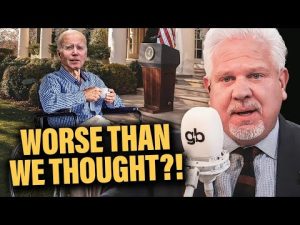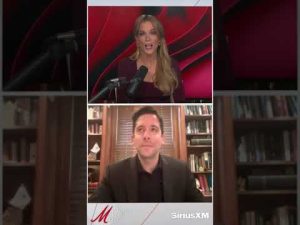The recent revelations surrounding the assassination of President John F. Kennedy have sparked renewed interest and debate, particularly among those keen on unraveling the mysteries of the past. Mike Benz, the executive director of the Foundation for Freedom Online, lent his expertise to explore the complexities and clandestine activities involving the CIA during that tumultuous era. His insights suggested that the shadows of conspiracy still linger over the events that led to the tragic day in Dallas.
Benz pointed out that the pressure on the CIA regarding Kennedy’s assassination has been mounting for decades. Back in the late 1960s and 70s, the agency faced a barrage of media scrutiny, ignited by growing public suspicion. It was these sensational stories that formed the basis for the Church Committee hearings in the mid-1970s. The hearings were significant because they led to the establishment of congressional oversight committees, aiming to hold the CIA accountable for its often murky operations. The CIA, like a cat caught in a room full of rocking chairs, was understandably anxious about its image, leading them to be particularly sensitive to any negative press.
One particularly intriguing piece of the puzzle is Gary Underhill’s case, which resurfaced as part of this ongoing discussion. This case, laden with controversy, stirred more questions than answers. If the CIA had a hand in this affair, it makes sense they would want to control the narrative carefully, ensuring that the details of the incident remained locked away from the public eye. After all, if there was anything the Agency was known for, it was the art of discretion—or to put it more bluntly, keeping secrets.
As the conversation turned to the notorious memo penned by Arthur Schlesinger, a friend of JFK’s from their Harvard days, the plot thickened even further. Schlesinger’s memo called for significant changes in the structure and power dynamics within the CIA, which may have set the stage for the events leading up to Kennedy’s assassination. He articulated a looming turf war between the CIA and the State Department, suggesting that covert operations had become the CIA’s prerogative, overshadowing traditional diplomatic channels. For those who believe in government conspiracies, it’s almost as if Schlesinger’s words echo throughout history, reflecting a perpetual struggle for power that can still be witnessed in today’s political landscape.
Benz also alluded to the fact that the Kennedy family has historically shied away from delving too deeply into the mysteries surrounding JFK’s death. This caution could stem from a fear of stirring up painful memories or simply a desire to avoid the limelight of scrutiny. Ted Kennedy notably indicated a fear for his own safety, suggesting that some questions might be better left unanswered. After all, digging too deep might unearth more than unwanted truths.
With roughly 80,000 documents recently made available, scrutiny of the official narrative continues to intensify. While some outlets have rushed to declare there’s nothing new or shocking, many skeptics wonder whether the veil of secrecy will ever truly be lifted. The saga of JFK’s assassination remains an enduring American mystery, one that tantalizes the imagination and prods at the natural curiosity of those who want to uncover the truth—no matter how hidden or convoluted it may be. Whether or not we will ever truly understand the full story remains to be seen, but one thing is certain: the search for answers will continue to captivate the nation for generations to come.







